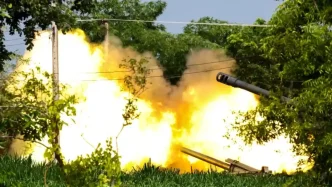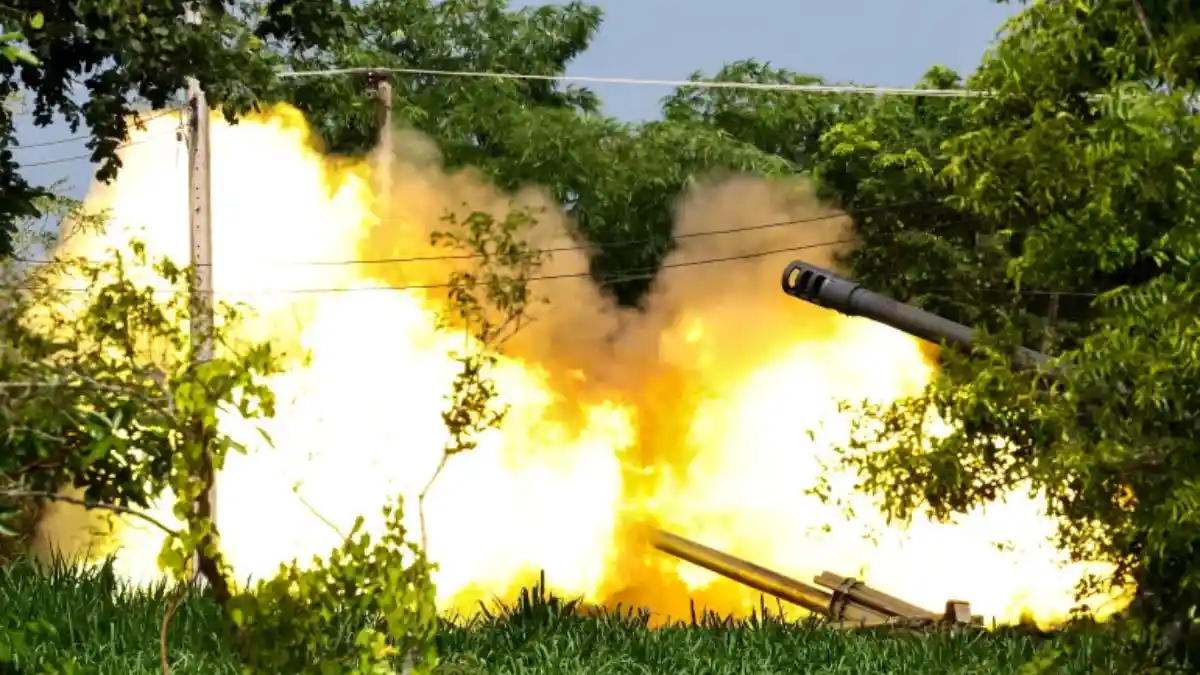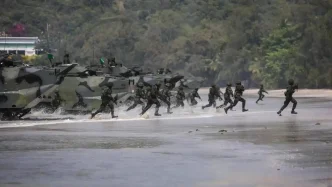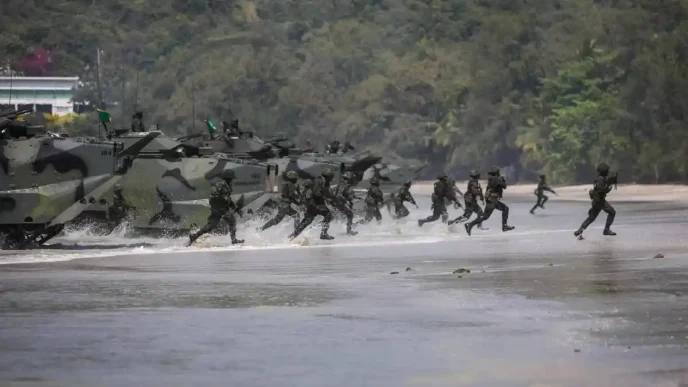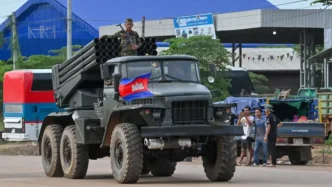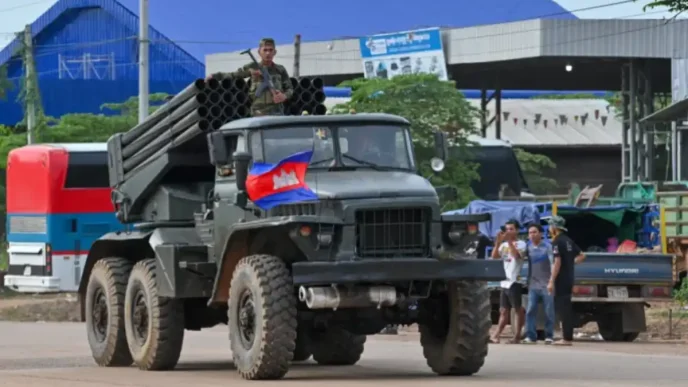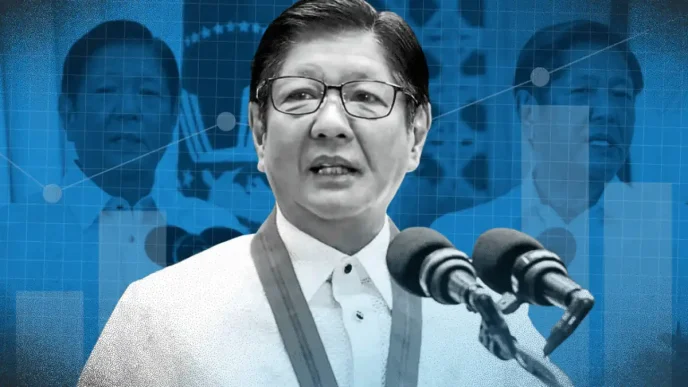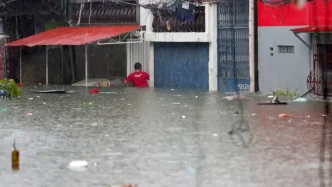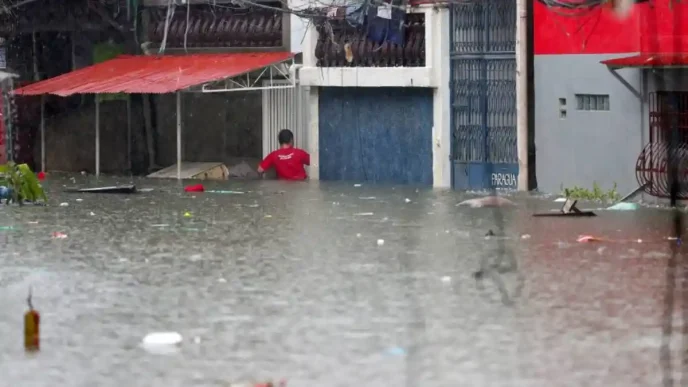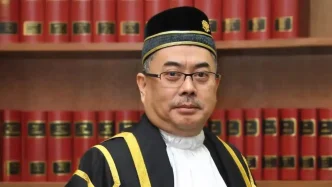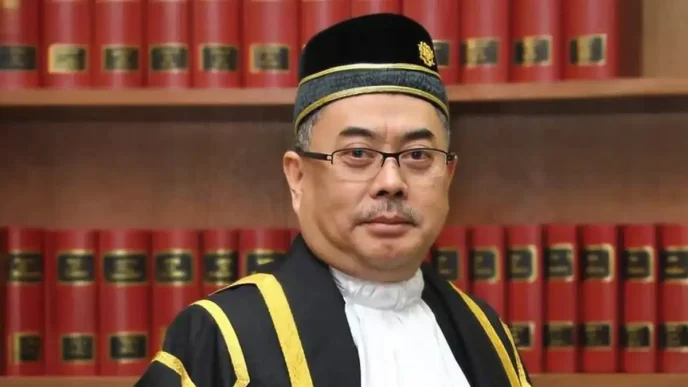Military clashes along the Thailand-Cambodia border have escalated, prompting urgent travel warnings from the US and UK and other world powers.
Cambodian social media user asked whether weapons provided to Cambodia by China are capable of hitting Bangkok. This echoes a statement by Hun Sen, who stated in a livestream on 27 June 2025 “Cambodia has the right to defend itself and retaliate. Even though we are a small country, the Cambodian army has weapons that can reach Bangkok, but we will not use them.“
Cambodia has deployed Chinese-made weapons in its recent strikes against Thai border positions, though none are capable of reaching the Thai capital, Bangkok. A Chinese analyst said that Beijing is unlikely to stand by if border tensions erupt into military conflict. “China’s weapon exports are defensive in nature, and after purchase, ownership and usage rights belong entirely to the recipient country,” said Song Zhongping, a former instructor in the People’s Liberation. “China would not wish to see two of its traditional friends at war, even over territorial disputes,” he added, noting that Beijing would likely seek to facilitate negotiations and a ceasefire.
While China advocates dialogue, Cambodia’s use of Chinese-made weapons, such as Type 81 machine guns and RM-70 rocket launchers, in attacks on Thai positions highlights the irony of Beijing’s neutral stance, given its military ties with Phnom Penh. Despite this, China has yet to take concrete steps to mediate.
Foreign Government Warnings
The US State Department has advised citizens to avoid travel within 50km of the border, citing ongoing conflict. A spokesperson for the US Department of State said “We are also gravely concerned by the escalating violence along the Thailand-Cambodia border, and deeply saddened by reports of harm to civilians. The United States urges an immediate cessation of hostilities, protection of civilians, and a peaceful resolution of the conflict.”
The UK’s Foreign, Commonwealth & Development Office warns against all but essential travel to Thailand’s Buriram, Si Saket, Surin, and Ubon Ratchathani provinces, and Cambodia’s Oddar Meanchey and Preah Vihear, due to violence, including rocket and artillery fire reported on July 24. The UK also maintains travel warnings for southern Thailand due to unrelated insurgent violence.
Border Crisis and Diplomatic Fallout
On July 25, Thailand closed all border crossings in Chanthaburi and Trat provinces, including maritime routes. The Thai Ministry of Public Health shuttered 11 hospitals, and 751 schools closed across six provinces. Over 100,000 Thai civilians and 6,000 Cambodian families have been displaced. Tourist sites, including Khao Phra Wihan and Ta Moan Thom temples, are closed amid warnings of unexploded landmines. Thailand accuses Cambodia of initiating attacks and planting landmines, while Cambodian Prime Minister Hun Manet claims Thai forces launched an unprovoked assault, requesting an urgent UN Security Council meeting. Tensions surged after former Cambodian Prime Minister Hun Sen secretly recorded a phone call with Thai Prime Minister Paetongtarn Shinawatra, who had visited Cambodia to address the border issue diplomatically. Hun Sen posted the recording on social media to discredit Paetongtarn. Cambodia has since been accused of denying Thai traders market access and barring tourists from temples and shrines, further straining relations. Chinese Foreign Minister Wang Yi, in a July 25 meeting with ASEAN Secretary-General Kao Kim Hourn, offered China’s mediation, stating, “The root cause of this issue lies in the lingering consequences left by Western colonialists in the past, and it now needs to be faced calmly and handled properly.” Thai Foreign Minister Maris Sangiampongsa welcomed the proposal, emphasizing non-violent resolutions.
As fighting persists, the region awaits whether diplomacy can overcome historical grievances. Questions posed by Cambodian social media users asked whether the Chinese provided weapons are capable of hitting Bangkok.

